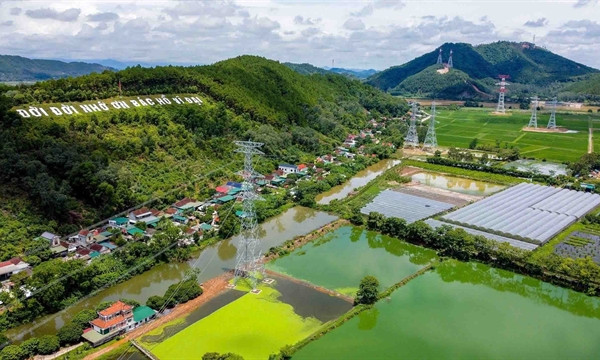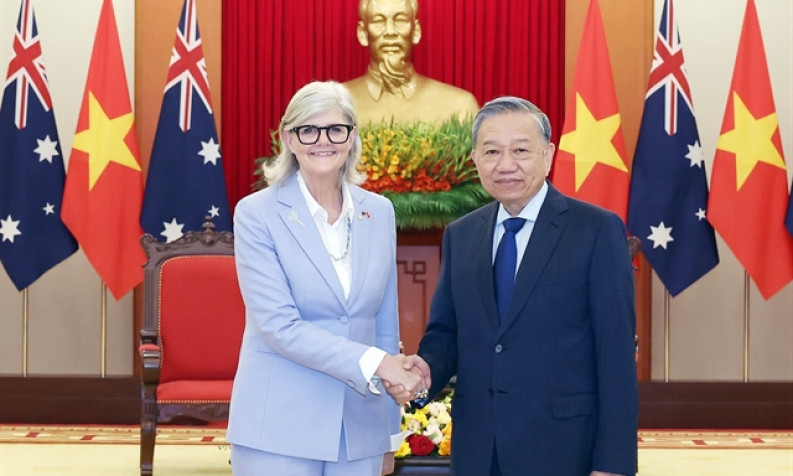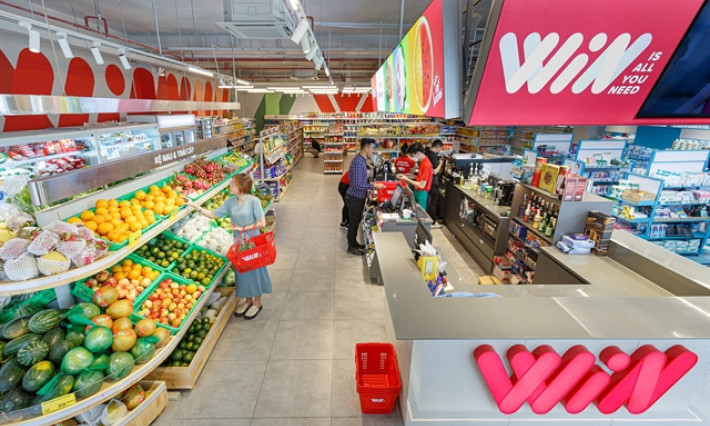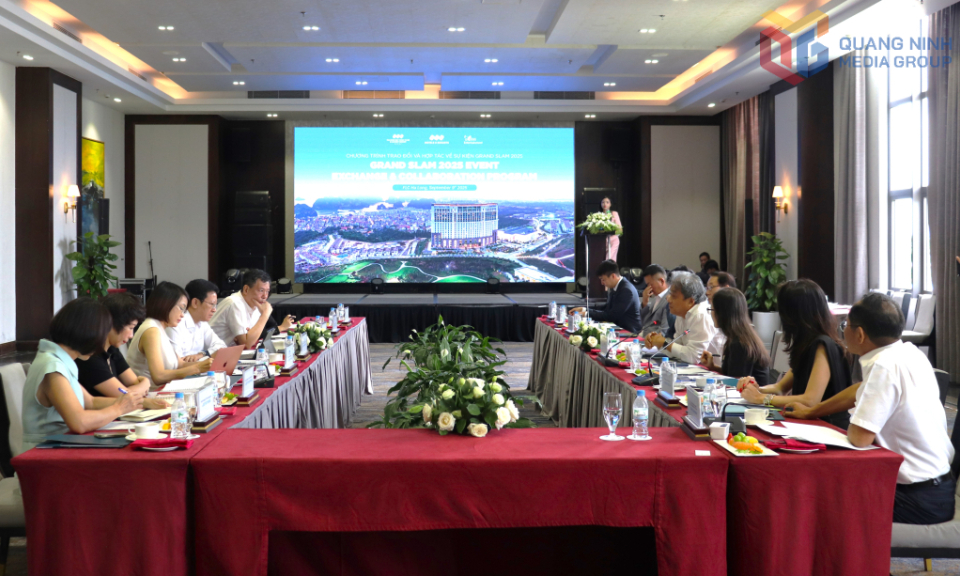Further administrative reforms key to improving competitiveness
The Vietnamese government is making great efforts to accelerate administrative procedure reforms in favour of people and businesses which are acting as the key driver of economic growth and national competitiveness.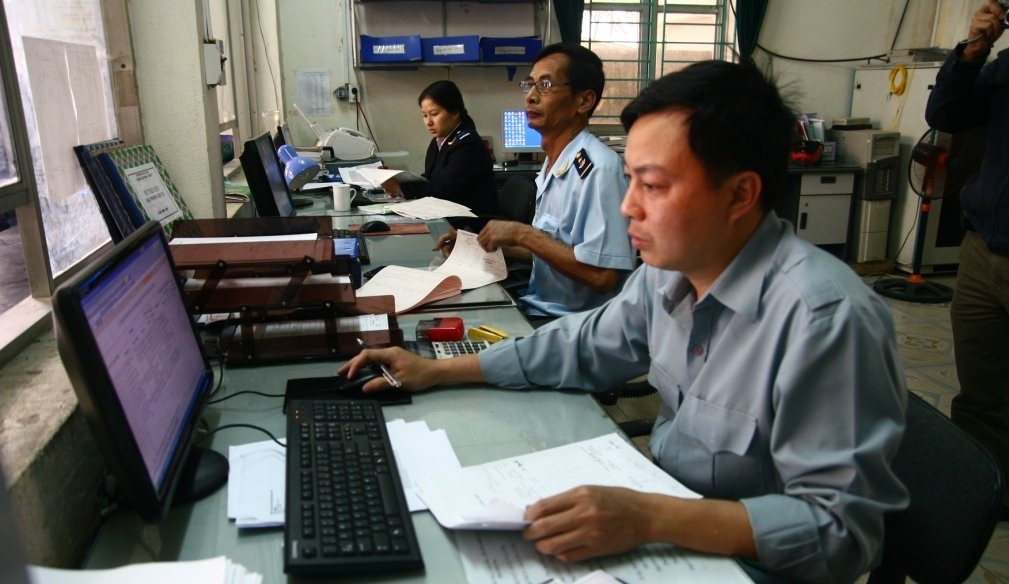
The Government Office has just released Announcement No.79/TB-VPCP dated February 22, 2022 conveying the conclusion of Prime Minister Pham Minh Chinh at the recent first meeting of the National Steering Committee on Administrative Reform.
PM Chinh has requested all ministries, agencies, and localities to drastically and effectively implement the government’s programme on administrative procedure reforms for the 2020-2025 period in favour of individuals and enterprises in a bid to create bigger momentum for economic growth which tend to rise up this year, thanks to the strong rebound of domestic production and businesses’ confidence.
On May 12, 2020, the government promulgated Resolution No.68/NQ-CP on the abolition or simplification of business-related conditions in the 2020-25 period. Accordingly, Vietnam strives to cut and simplify 20% of regulations and 20% of costs related to business activities by 2025.
Prime Minister Chinh has also demanded that all ministries, agencies, and localities expeditiously the government’s scheme on renewing the one-door mechanism in dealing with administrative procedures, and the government’s strategy on developing an e-government that heads to the digital government in the 2021-2025 period and with a vision to 2030; and the prime minister’s Decision No.06/QD-TTg dated January 6, 2022 approving the project on developing the application of population database, e-identification and e-authentication for national digital transformation in the 2022-2025 period, with a vision to 2030.
One of the reasons behind PM Chinh’s orders is that the implementation of these programmes remains slow, affecting the performance of enterprises and people’s life, and the economy’s competitiveness, especially when Vietnam has to strongly compete with many other nations in attracting investment and international tourists.
“I have met with many investors and businesses at home and abroad. They said though Vietnam has made headway in administrative reforms, many cumbersome procedures remain, making it difficult for them to conduct investment and business in the country,” PM Chinh said at a recent meeting of the Steering Committee of Administrative Reform where he works as the head.
“One of the biggest goals of administrative reform is removing corruption including petty corruption,” he continued. “All ministries and agencies have to accelerate reforms, firstly they have to change their mindset, methodology, and solutions.”
Over the past few years, at all dialogues such as the Vietnam Business Forum or the Forum on Reform and Development organised annually, the business community has always lamented that though having been decreased and simplified significantly, many legal regulations vexing people and businesses exist. In many ministries and localities, when a regulation is removed, another more complicated regulation is created, making it very difficult for enterprises to abide by and then affecting their performance.
Urgent need of reforms
“If Vietnam is slow in administrative reforms, it will lose many opportunities in attracting more foreign direct investment, which is recovering after the global economic down turn,” said Alain Cany, chairman of the European Chamber of Commerce (Eurocham) in Vietnam. “Many foreign enterprises remain to be faced with troubles in having their projects approved in many localities, though Eurocham urged the government to improve administrative procedures many times.”
Many enterprises are still complaining that investment procedures are relatively complicated, though many localities have had their own “one-door” policy to assist investors. It often takes one year for a foreign project to be licensed, while the process needs only one or two months in other regional countries.
“The cause is attributed to a fact that localities explain laws in different ways. Time is gold and investors cannot wait too long for their projects to be approved, while they have many other things to be worried about such as bank loans and site clearance, which is also a big obstruction towards their projects,” said Nguyen Hong Van, director of Hoang Ngoc Import and Export Co., Ltd in the northern province of Phu Tho which is planning to develop a large-scale project on producing agricultural products.
Thomas Peter, director of a Danish company said that there was a huge chasm between the government’s policies and how these policies were implemented at localities.
“We once came to a locality asking for site for our project. Authorities promised. But there were too many procedures that are not seen in other regional nations,” Peter said.
Underlining the imperative need of further administrative reforms, the Vietnam Chamber of Commerce and Industry said in its position paper recently delivered to the sent to the Vietnam Business Forum organised in Hanoi that one of the best solutions in such reforms is to foster IT application in administrative procedures, towards fully online public service delivery.
“In fact, in the past two years, the COVID-19 pandemic and associated social distancing orders made it difficult to approach customers and partners to conduct business transactions, especially services related to the issuance and certification of documents. There are still many shortcomings such as some procedures do not accept online submission or electronic signatures and digital signatures in the registration and approval process or some procedures still requires submission of original hard copies, among others,” read the paper.
“In fact, the recent pandemic has been a challenge but also an opportunity to accelerate the digitisation of administrative procedures. Further develop and upgrade the national single-window portal, and the national public service portal, among others. It is also necessary to accelerate the delivery of level 4 public services across most administrative procedures. All of these are aimed to fully online delivery of administrative procedures for businesses and citizens,” the paper said.
Administrative reforms have been underlined in the government’s almost all policies and programmes over the past decades. The 2007-2011 period saw the review and issuance of over 6,000 procedures, with an average decrease of 1.6 billion USD per year in cost for abiding by these procedures. The 2016-August 2020 period witnessed the removal and simplification of 3,893 out of 6,191 business conditions; and 4,418 out of 5,421 business procedures. Moreover, the government also reformed regulations of specialised inspection for 6,776 out of 9,926 lines of goods, saving 260 million USD per year.
In addition, around 1,400 administrative procedures were introduced in the National Public Service Portal, saving 291.3 billion USD annually.
The government has set out a number of big measures, such as annually implementing the plan on cutting and simplifying regulations related to the business activities; regularly updating regulations related to business activities that are amended, supplemented, replaced, and abolished; and receiving, collecting and summarising all enterprises and people’s feedbacks, recommendations and opinions on unreasonable regulations.
Big message
Prime Minister Pham Minh Chinh underlined strongly that in 2022, there must be a big breakthrough in administrative reforms, especially when it comes to procedures related to people and enterprises who can make more contributions to national development.
“We must strongly improve the domestic business climate, increase the national competitiveness, foster innovation and a digital economy and a digital society while heading towards sustainable development in order to adapt to the trend of the Industry 4.0,” he said. “We must have the same mind that investment into administrative reform is investment for development, and this investment must be concentrated with specific activities without delays,” he continued. “Words and actions must match without formalism, with products and effectiveness benefiting people and enterprises.”
“All ministries and localities have to change their ways of thinking and improving their awareness, role, and responsibility in leading and directing the implementation of administrative reforms. Specifically they have to formulate and better the legal regulations in service of administrative reform; continue reviewing and cutting procedures in favour of people and enterprises; invest more into human resources; and listen to ideas from agencies, units, and people for boosting administrative reforms.”
The government has set a goal of developing the country into a modern and industrialised country by 2030, and a high-income developed country by 2045.
“In this process, we reiterate our commitment and resolve to provide international businesses and investors with every favourable condition to contribute to and share the fruits of the Vietnamese economy, on the principle that ‘your success is also Vietnam’s success’,” the prime minister stated at the Vietnam Business Forum held in Hanoi on February 21.
Over the past years of administrative reforms, Vietnam’s competitiveness in the global ranking indexes has remarkably improved, helping further strengthen confidence.
According to the Ministry of Planning and Investment, Vietnam has harvested significant achievements, such as innovation sitting at 44th out of 132 economies in 2021 (World Intellectual Property Organization); e-government standing at 86th place in 2020, up by two ranks in 2018 (UN); sustainable development at 51st out of 165 economies last year, up by 37 places compared to 2016 (United Nations); and cybersecurity in 25th place out of 194 economies in 2020, a rise of 25 places against 2018 (International Telecommunication Union).



